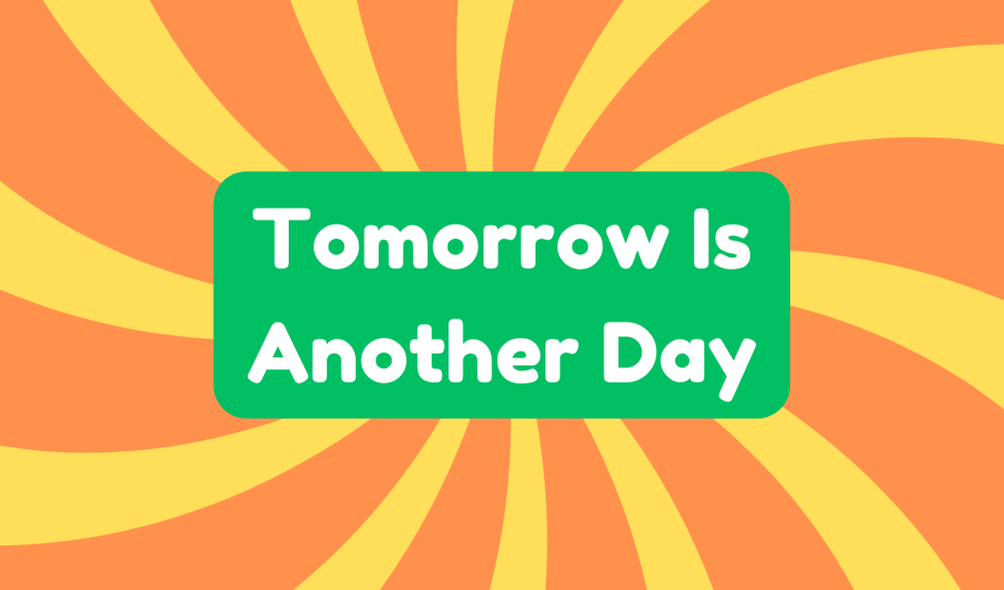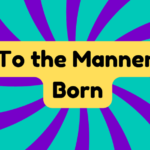"Tomorrow is another day" serves as a powerful expression of hope and resilience. Its origins trace back to literature, signifying a chance for fresh starts. People often cling to this phrase after setbacks, believing that disappointments do not define their future. Still, it's important to balance optimism with realism, acknowledging that while tomorrow may offer new opportunities, proactive efforts are essential. Understanding this concept reveals deeper insights into human behavior and aspirations, prompting further exploration of its significance.
Synonyms
The phrase "Tomorrow is another day" embodies a sense of hope and renewal that resonates with many. It serves as a reminder of fresh starts and future possibilities. Synonyms capture this sentiment in diverse ways:
- "A new dawn" suggests fresh beginnings.
- "Each day is a gift" emphasizes appreciation.
- "Every sunrise brings opportunities" highlights potential.
- "The day after today" continues the cycle of advancement.
While these alternatives share an optimistic essence, one must also consider that tomorrow might not always deliver the promised change. In reality, real innovation often requires action today, not just passive hope for a better tomorrow.
Example of Sentences
Examples of sentences using the phrase "Tomorrow is another day" illustrate its common usage in everyday language. These sentence examples reflect a positive outlook amid challenges, showcasing the phrase's potential to inspire resilience. Consider the following scenarios:
- After a tough day at work, she reminded herself, "Tomorrow is another day."
- When he received disappointing news, he whispered, "Tomorrow is another day."
- Following a setback in her project, she felt hopeful, knowing, "Tomorrow is another day."
- Even after a difficult conversation, he left with the thought, "Tomorrow is another day."
These contexts highlight its role in fostering hope and encouraging new beginnings.
Origin
Although many associate the phrase "Tomorrow is another day" primarily with Scarlett O'Hara from *Gone With The Wind*, its origins run deeper and can be traced back to earlier print materials. First appearing in *Harpers Weekly* in 1857, this famous phrase embodies hope and resilience, showcasing its literary significance. Its journey through literature reflects societal attitudes towards new beginnings, influencing subsequent expressions.
| Year | Source | Context | Significance |
|---|---|---|---|
| 1857 | *Harpers Weekly* | Acknowledgment of future opportunities | Early usage |
| 1936 | *Gone With The Wind* | Iconic line by Scarlett O'Hara | Cultural impact |
Collocations
In examining the phrase "Tomorrow is another day," its collocations highlight how it interacts with other words and phrases in everyday language. The combination enriches its meaning, disclosing linguistic nuances that reflect broader human experiences. Such phrase combinations include:
- Repeatedly emphasizing hope
- Contrasting with despair
- Pairing with proactive expressions
- Evoking resilience in adversity
These relationships illustrate how language evolves, reflecting fresh perspectives while rekindling timeless themes. Yet, skepticism remains: can a mere phrase catalyze genuine change, or does it simply offer false comfort? As language shapes thought, exploring these collocations reveals deeper insights into human behavior and aspiration.
How to Use in Everyday Language
Using the phrase "Tomorrow is another day" effectively in everyday language can be a subtle art. This expression embodies everyday optimism and can serve as a powerful tool for resilience language. When faced with setbacks, acknowledging that a new day brings fresh possibilities can shift perspectives. However, its overuse risks sounding clichéd or insincere, diluting its impact. For genuine communication, it's crucial to contextualize the phrase, using it to uplift without ignoring present challenges. Thoughtfully integrating this saying fosters a meaningful dialogue about hope, while also conveying realism in the complexities of daily life—reminding us that even tomorrow requires action.
Why Is It Still Relevant Today?
Why does the phrase "Tomorrow is another day" continue to resonate in modern society? In an age characterized by rapid change and uncertainty, this expression offers a hopeful outlook, encouraging individuals to embrace new beginnings. It reflects resilience strategies that empower people to navigate challenges, reminding them that setbacks are not permanent. However, reliance on this sentiment can be problematic; it may enable complacency without action. Acknowledging that while tomorrow provides opportunities, it requires proactive effort to seize them. This balance between optimism and realism underscores the phrase's ongoing relevance, as people seek both hope and tangible progress in their lives.







